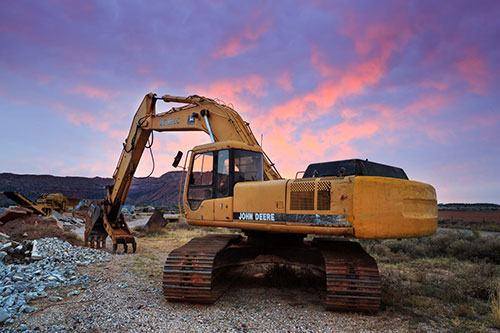The national average cost of a structural claim is $42,500, however in Utah the average is $113,000. Today, we’ll explore the reasons behind the data, namely, foundation-damaging soils that are found throughout the state, and how builders can protect themselves and their builds.
Building on Utah’s problematic soils
Depending on where you build in the state, Utah’s soils can pose major problems for builders and their foundations. Southern Utah in particular has its fair share of expandable and collapsible soils, so there’s a strong chance you’ll encounter less-than-ideal soil eventually (if you haven’t already.)
Most experienced builders have seen the results of problem soils at some point during their career, and know that when bad soils are found, the foundation’s integrity can still be preserved.
How to protect the homes you build in Utah
There are a number of ways you can protect your residential construction business when building in Utah:
- Understand where you’re building. Do some research before you commit to building on a new lot. Learning more about the types of soils in the area will be helpful, and you can also hire a geotechnical engineer to assess the ground so that you know exactly what’s needed to build safely. Builders in some areas can cut their risk of structural claims by up to 50% by having geotechnical investigations performed on questionable soils, so it’s an easy way to manage risk.
- Build with best practices in mind. This one might seem obvious, but it can be tempting to cut corners (which includes not doing proper research or hiring a soils engineer.) You should also take extra measures when building in a high-risk area like Utah. One Denver-based builder (another region with problematic soil in some areas) over-excavates every home site to five feet beyond the edge of the foundation and up to seven to ten feet below. He then reconditions the soil with a water truck to achieve a uniform moisture content before putting the soil back.
- Consider purchasing structural warranty protection. A structural warranty covers 1 year of workmanship defects, 2 years for systems defects and 10 years for structural defects. When you partner with an organization like 2-10 HBW, you also get access to soil and data information that’s specific to building in Utah.
Structural warranties also simplify complaint handling, give buyers more confidence in their big purchase, educate homebuyers on the importance of maintenance, protect your business’s finances, and more. They’re a useful tool that can make running your business easier, just in case something goes wrong.
Structural Warranties can protect builders and their buyers from devastating structural problems. But, maybe even more importantly, they give homeowners that all-too-important peace of mind that when something goes wrong, they’re covered. Become a member today!








